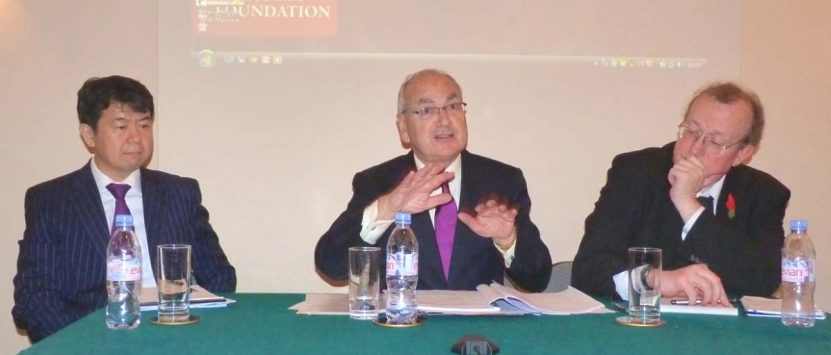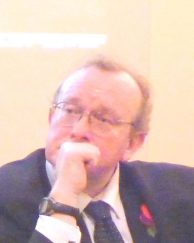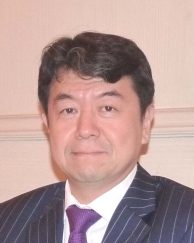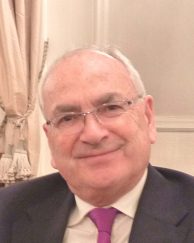 Seminar
SeminarTuesday 30 October 2012
6:00pm – 7:45pm
Cyber Security
Drinks reception from 8:45pm
Daiwa Foundation Japan House
Organised by Daiwa Foundation
Cyber-security threats are becoming more and more significant, not only for states, but also for companies and individuals. The UK is now facing cyber-attacks on an unprecedented scale and they continue to increase, ranging in sophistication from low-end criminal activity to highly-sophisticated operations. Terrorists now have no need to use nuclear bombs, since cyber-attacks on nuclear power stations potentially could have devastating effects, as suggested by the Fukushima accident last year. John Bassett argued that there are three priorities: people, partnerships and network defence. People in industry, academia, the military and the public sector all have a role to play. Industry can provide vital coaching and assistance. A strong focus by universities on cyber issues is important for raising awareness and changing attitudes. Effective government partnerships with industry, and cyber-relationships with other governments, are also essential to enhance security. Shuichi Uchikoga illustrated how industry is dealing with cyber-security issues by explaining the concept of Smart Community. Various parts of our social infrastructure are linked together by information technology. Although there are advantages to these networks, it is also crucial that they are protected from cyber-attacks. Dr Uchikoga talked about security initiatives in this area and recommend the use of systems based on the new technology of quantum cryptography. The seminar was chaired by Professor Anthony Glees of the University of Buckingham.
About the contributors

John Bassett OBE
John Basset OBE is Associate Fellow, Cyber Security at the Royal United Services Institute. He worked for the Government Communications Headquarters (GCHQ) from 1991 to 2010 in a range of posts at home and overseas. As head of GCHQ’s London office he frequently represented GCHQ at COBR (crisis response committee) between 2004 and 2007 and attended ministerial groups on foreign and security issues. Most recently he was posted to the British Embassy in Washington DC, where he liaised with the US Government on cyber security and related issues. Interests include cyber security, the future of network defence, interception legislation and civil liberties, the trans-Atlantic security relationship, crisis management, resilience and counter-insurgency. He was educated at Oxford University (MA in Classics) and the University of the West of England (MSc in IT).

Dr Shuichi Uchikoga
Dr Shuichi Uchikoga is Deputy Managing Director of Toshiba Research Europe Ltd, Cambridge Research Laboratory. He joined Toshiba in 1987 as Research Scientist for amorphous semiconductors used in TFT-LCDs. Before he was assigned to his present position, he lead research projects on various electronic devices such as power devices, LEDs and displays. He also has experience assigned as internal auditor. Uchikoga was educated in Tokyo Institute of Technology (MSc) and Waseda University (PhD). He spent a sabbatical year in Cambridge University as By-Fellow of Churchill College.

Professor Anthony Glees (Chair)
Professor Anthony Glees (Chair) is Professor and Director of the Centre for Security and Intelligence Studies (BUCSIS), The University of Buckingham. He has taught at Oxford, Warwick and Brunel universities (as a professor of Politics). He specialises in domestic and foreign national security issues and intelligence-led security policies; he has written widely (including six books and numerous book chapters) and lectured on this field for many years. He is on the advisory boards of the Asia-Pacific Foundation in London and the Oxford Intelligence Group, amongst others. Since 2002 he has been a consultant to a think-tank in the European Parliament. Professor Glees is a member of the editorial board of two journals, has acted as a consultant for TV and is a frequent commentator on national security and intelligence for the media. He worked at the Home Office and for BBC TV Head of Current Affairs, and also as politics advisor to the British Council, Germany.